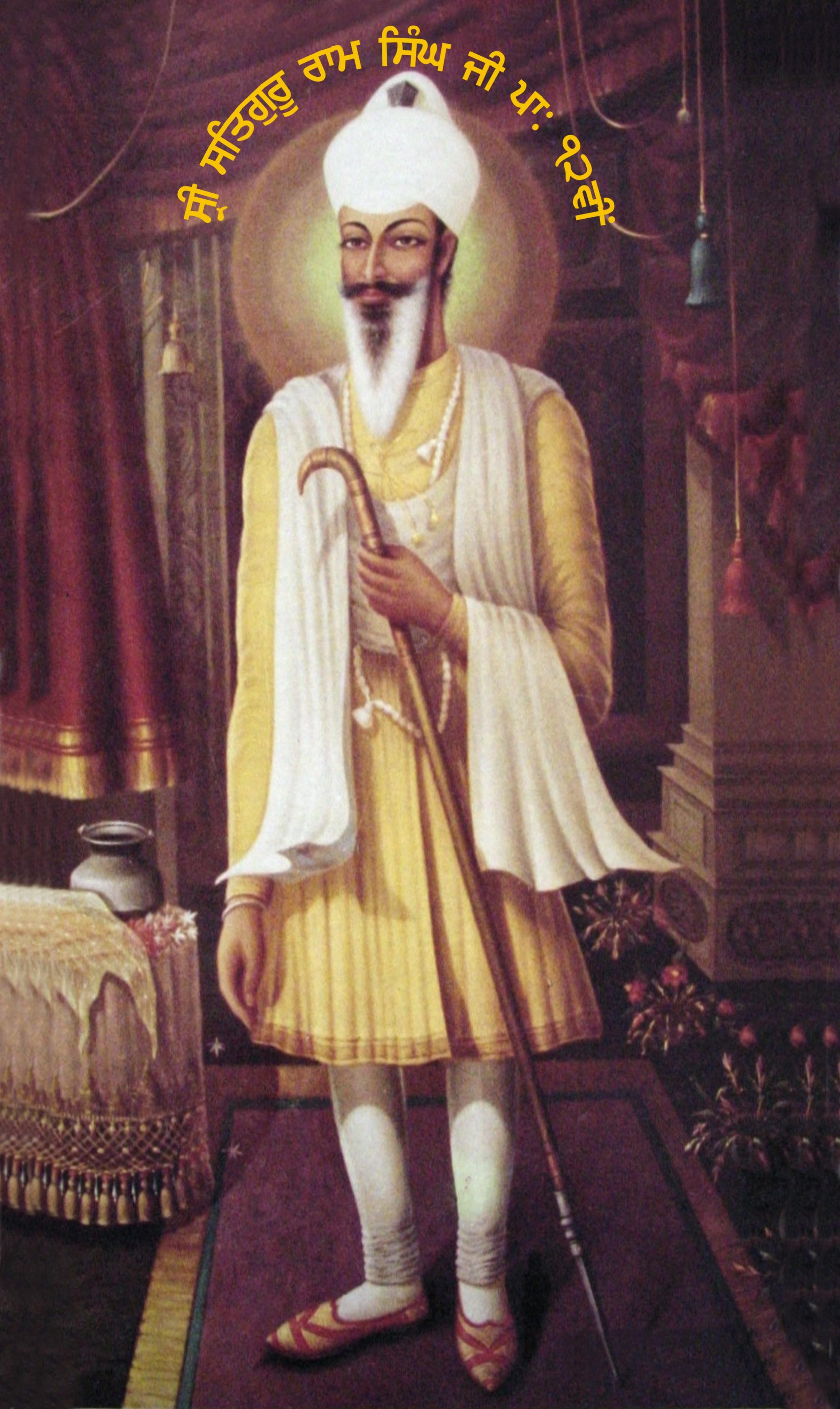Ram Singh (activist) on:
[Wikipedia]
[Google]
[Amazon]
 Guru Ram Singh Kuka (3 February 1816 – 29 November 1885) was the second guru (religious leader) of the Namdhari sect of Sikhism. He is credited as being the first
Guru Ram Singh Kuka (3 February 1816 – 29 November 1885) was the second guru (religious leader) of the Namdhari sect of Sikhism. He is credited as being the first
 Guru Ram Singh Kuka (3 February 1816 – 29 November 1885) was the second guru (religious leader) of the Namdhari sect of Sikhism. He is credited as being the first
Guru Ram Singh Kuka (3 February 1816 – 29 November 1885) was the second guru (religious leader) of the Namdhari sect of Sikhism. He is credited as being the first British Indian
British Indians are citizens of the United Kingdom (UK) whose ancestral roots are from India. This includes people born in the UK who are of Indian origin as well as Indians who have migrated to the UK. Today, Indians comprise about 1.4 mil ...
to use non-cooperation and boycott of British goods and services as a political tool. He was exiled to Rangoon
Yangon ( my, ရန်ကုန်; ; ), formerly spelled as Rangoon, is the capital of the Yangon Region and the largest city of Myanmar (also known as Burma). Yangon served as the capital of Myanmar until 2006, when the military government ...
, Burma (Myanmar)
Myanmar, ; UK pronunciations: US pronunciations incl. . Note: Wikipedia's IPA conventions require indicating /r/ even in British English although only some British English speakers pronounce r at the end of syllables. As John Wells explai ...
by the British colonial government of India on 18 January 1872.
Biography
Ram Singh was born in a small-farming Tarkhan family to mother Sada Kaur and father Jassa Singh. He lived in the village of Raiyan, near Sri Bhaini Sahib, Ludhiana. Like many other great souls and Saints, Guru Ram Singh had a pious mother who reared him up by Singing to him the verses from the Holy Granth Sahib ji, and by narrating to him the lives and adventures of the Gurus and other Epic heroes. He learnt Gurmukhi from his mother and he memorized many parts of the 'Bani'. His father taught him how to became a carpenter but Guru Ram Singh was more interested in Naam Simran. At the Age of 9, while the other boys sang the village folks, he always sang versus from the Bani. The other felt amused and joined him in his holy versus. His father sent him to the army of the Sikh Empire at age 20 under Sher Singh. As the empire fell apart after the death of MaharajaRanjit Singh
Ranjit Singh (13 November 1780 – 27 June 1839), popularly known as Sher-e-Punjab or "Lion of Punjab", was the first Maharaja of the Sikh Empire, which ruled the northwest Indian subcontinent in the early half of the 19th century. He s ...
, concerns over British power and Sikh decline led him to galvanize his followers (of mostly humble origin) to proclaim a new "Kuka Khalsa" to restore Sikh prestige.
Ram Singh Kuka was a member of a unit of Prince Naunial Singh's platoon, the Baghel Regiment. His regiment was sent to Peshawar to bring the royal coffers. On its way back, the unit rested at Hazro Fort, now in Pakistan. It is said that Ram Singh and some soldiers of his regiment went to meet Balak Singh of the Namdharis. Balak Singh was overjoyed to see Ram Singh and according to folklore told him: "I had been waiting for you." He told Ram Singh Kuka that he was the next in line to Balak Singh.
Balak Singh gave him "Patasha" (sugar bubbles), a coconut, five paise coins and took five rounds around him in reverence and bowed before him,Tara Singh Anjan - Ram Singh and Kuka Movement, p. 14 making him his successor.
References
{{Reflist 1816 births Year of death missing 19th-century Indian philosophers Sikh gurus